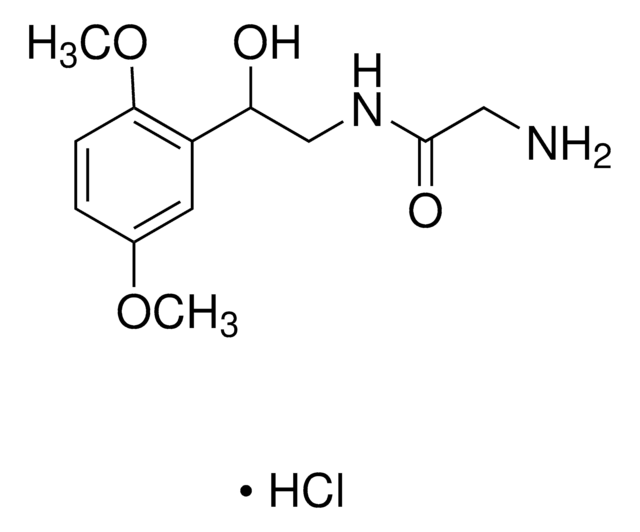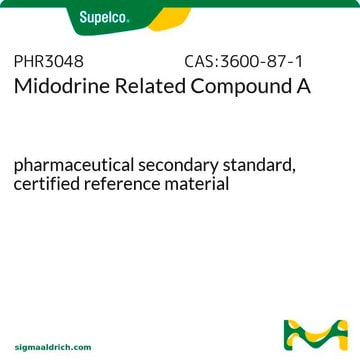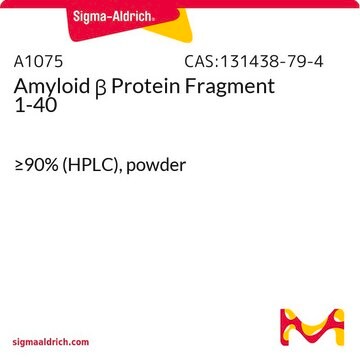M8277
Midodrine hydrochloride
analytical standard, for drug analysis
Synonyme(s) :
(±)-1-(2,5-Dimethoxyphenyl)-2-glycinamidoethanol
About This Item
Produits recommandés
Qualité
analytical standard, for drug analysis
Niveau de qualité
Technique(s)
HPLC: suitable
gas chromatography (GC): suitable
Application(s)
forensics and toxicology
pharmaceutical (small molecule)
veterinary
Format
neat
Chaîne SMILES
Cl.COc1ccc(OC)c(c1)C(O)CNC(=O)CN
InChI
1S/C12H18N2O4.ClH/c1-17-8-3-4-11(18-2)9(5-8)10(15)7-14-12(16)6-13;/h3-5,10,15H,6-7,13H2,1-2H3,(H,14,16);1H
Clé InChI
MGCQZNBCJBRZDT-UHFFFAOYSA-N
Informations sur le gène
human ... ADRA1A(148) , ADRA1B(147) , ADRA1D(146)
Vous recherchez des produits similaires ? Visite Guide de comparaison des produits
Description générale
Application
Actions biochimiques/physiologiques
Mention d'avertissement
Danger
Mentions de danger
Conseils de prudence
Classification des risques
Acute Tox. 3 Oral
Code de la classe de stockage
6.1C - Combustible acute toxic Cat.3 / toxic compounds or compounds which causing chronic effects
Classe de danger pour l'eau (WGK)
WGK 3
Point d'éclair (°F)
Not applicable
Point d'éclair (°C)
Not applicable
Équipement de protection individuelle
Eyeshields, Faceshields, Gloves, type P2 (EN 143) respirator cartridges
Faites votre choix parmi les versions les plus récentes :
Déjà en possession de ce produit ?
Retrouvez la documentation relative aux produits que vous avez récemment achetés dans la Bibliothèque de documents.
Les clients ont également consulté
Notre équipe de scientifiques dispose d'une expérience dans tous les secteurs de la recherche, notamment en sciences de la vie, science des matériaux, synthèse chimique, chromatographie, analyse et dans de nombreux autres domaines..
Contacter notre Service technique










